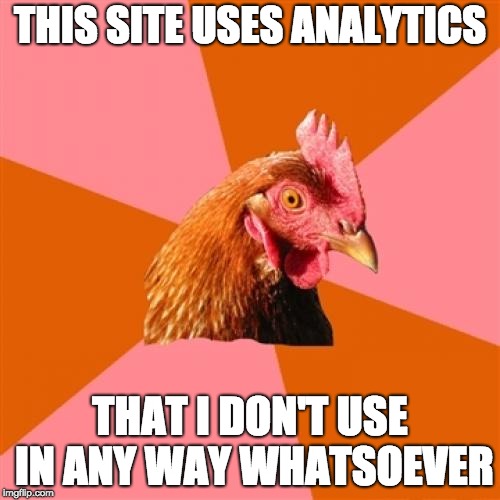There were only two exciting annual events that occurred in the tiny Wisconsin town (pop. 300) I spent my later-childhood years in: the lighting of a large Christmas tree and the carnival, the latter of which traveled from small town to small town each weekend in the summer. The tree was very nice and all, but the fair was the real fun. I'd beg something like two bucks off my dad or mom each day of the long weekend, and with that bought the most delicious burgers with grilled onions you've ever tasted, cotton candy, root beer floats, and as many rides as I could afford (or stomach) on the Zipper or the Tilt-A-Whirl. If I had any coins left over, I'd sometimes allow myself to be enticed by the shady sour-faced game barkers, who were often kids not that much older than me.
It didn't take very many rounds of carnival game-playing to realize that the odds were totally stacked against the fair-goers. This riled my juvenile sense of fair play and justice -- how could they make the basketball hoops smaller than normal?? -- but still thought maybe, just maybe, I could beat them anyway. Everyone thinks this. Billions and billions of dollars are spent at casinos every year, because the kid who once won a giant stuffed panda at the balloon dart game still loves the idea and the rush of beating the odds just once...or twice.
The best game, my 5th-grader self thought, was the Ping-Pong Ball/Win A Goldfish Toss. How beautiful it was in comparison with the grimy, faded, peeling-paint booths around it and the grimy, faded, drunken grown-ups trying to win giant stuffed pandas! There, sparkling from the string of old Christmas lights hung overhead, was a little sea of tiny clear glass fishbowls in a tidy square. Each bowl was filled with Tiffany-blue colored water and a single shimmering goldfish, swimming placidly in its minuscule water world. I was thrilled by the idea that you could actually win an animal at the fair that you could take home and keep! Kids flocked to the game, parents coughing up coins until they ended up with a $20 goldfish, or dragging a crying child away, muttering, "You're not getting no goddamn fish! Let's go!"
But at 11 years old, I was at the fair with my friends, had a couple of quarters left in my jean shorts pocket, and I wanted to win a goldfish. I stood there for a time and analyzed as people came and went, winners and losers. Again, the openings at the top of the fish bowls -- like the damn basketball game! -- were barely bigger than the diameter of the ping-pong ball that you were supposed to toss in a bowl to win a fish. Most of the time, a shot would bounce off the rim and keep bouncing to the ground. Sometimes the ball would nearly make it, and then bounce out again. Sometimes the ball got stuck in-between the bowls. The key to winning, I figured, was to select one particular bowl and try to toss the ball just high enough in the air so it would gently come straight down into the bowl, without touching the rim at all, and with not so much force that it would bobble out.
I paid the carny. I felt the ping-pong ball with my fingertips. I shut out everything else -- all the noise, the smells, my friends giggling and talking at me and pushing each other, the carny's world-weary fake smile. It was just me, the ball, and that fish. I took my time, relaxed, leaned forward, and let the ball lift out of my hand into the air. I knew, in the fraction of a second after the ball left my hand, that it would go into the fish bowl, and remain.
My fish startled at the very unexpected intrusion, and kept his distance from the floating white invader globe. My friends cheered as if I had won the Fishbowl Game Olympics, as I grinned in excitement. The carny paused to pick up the bowl from the table, removed the ball, and rather unceremoniously dumped the blue water and my fish into a clear plastic baggie, secured the top with a twist-tie, and handed my prize to me with a small cylindrical shaker of fish food flakes.
"Don't feed him too much. Give it clean water not too hot or cold. Congratulations, little lady."
I had a fish now. It was mine, and I had to take care of it. I peered at it in the baggie as it peered back at me, looking wary and skittish. Saying goodbye to my pals, I started the walk back home past the bumper cars and the beer tent, the red-brick Lutheran church and the '40s yellow-brick ranches, to try to figure out how I was going to tell my folks we got a fish.
"Hey! We got a fish!!" I exclaimed as the baggie and I opened the door to the kitchen. I figured if I looked super-happy and excited, my folks couldn't possibly tell me I couldn't have it. That would be too, too cruel, to be a Winning-Fish-Game Denier, right? Somewhat to my surprise, they were OK with it, and my mom found high up in a cabinet a bigger old fishbowl that once belonged to my grandma. She carefully tested the water from the kitchen faucet to make sure it was not too hot or cold, as I kept telling her how important the guy said that was. I asked her if we could use some food coloring to make the water blue, and she said she thought that maybe it wasn't the best idea for the fish's health.
I so so carefully carried the big fishbowl into my room, planning a trip into town to go to the pet store and buy some plants and a fish house and fish toys for my little guy. He needed a name first, though. I had been very into reading this big black book on Greek mythology, so I started paging through that for ideas. Watching my fish swim up to the top of the water, then down again, then up again, then down again for like ten minutes, I decided I would call him Sisyphus, after the deceitful boulder-roller of the same name.
He had a name; now, I thought, he must be hungry after all that excitement. Without reading the label, I shook a few flakes out onto the top of the water and watched enthralled at Sisyphus darted to the surface and instantly sucked up the little nugs with his teeny little O-mouth. Wow, he is famished, I said to myself, and shook a few more flakes in. ZOOP! He ate them right up again. I was feeling very proud and maternal. As he skirted around the top looking for more, the carny's voice drifted back to me, albeit very, very faintly...
"Don't feed him too much..."
Hey, Sisyphus was a smart fish, I decided. Animals don't eat unless they are hungry, right? If the little guy is hungry, it would be WRONG if I withheld food, right? He might die from hunger! Who knew when that fair reprobate fed him last, right? For the third time, I shook the fish food into the fishbowl, but this time a whole big pile of food plopped out and just about covered the entire surface of the water. I gasped. Sisyphus went mental, sucking up the flakes like a tiny orange vacuum cleaner. He...he was real darn hungry, apparently. I set my mild worries and the carny's warning aside, feeling very sure that when the fish was full, he'd stop eating and could eat the remaining food whenever he felt like a nosh.
When I woke up the next morning, I saw my dear doomed Sisyphus floating at the top of the bowl, surrounded by fish food, dead as dead could be. Guilt, sadness, and then panic set in. I couldn't bear losing my fish baby AND suffer hearing from my family how it was all my fault. I quietly picked up the sloshy bowl, took it to the bathroom, and poured poor Sisyphus from the fishbowl into the toilet bowl, crying fat silent tears. I refilled the bowl with clean water from the bathroom sink, then tip-toed back with it into my room. I sat on the edge of my bed for a moment and looked at the fish-less fishbowl, feeling very bad indeed. But it was time for the show.
"MOM! MOM!" I wailed, as I ran down the hallway from my bedroom into the kitchen, where my mother was cooking a breakfast of bacon, toast, scrambled eggs, and coffee. My father peered over the front page of the Sunday Milwaukee Journal, heavy brows furrowed. "MOM!!! DAD!!! THE CAT ATE THE FISH! KOOBY ATE MY SISYPHUS!!" I burst into wracking sobs as my confused parents made sympathetic noises, and probably rolled their eyes at each other.
The moral of this story is that you can definitely kill someone with kindness, but it might make for a pretty good story 40 years later.
THE CARNIVAL GOLDFISH
Tuesday, January 29, 2013




